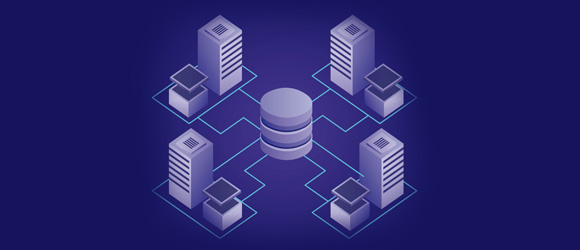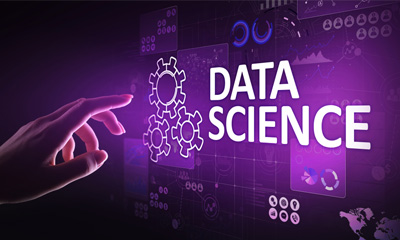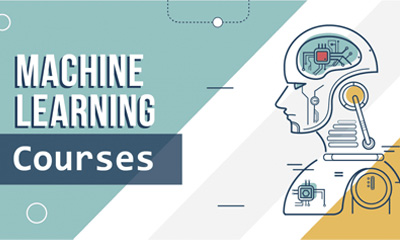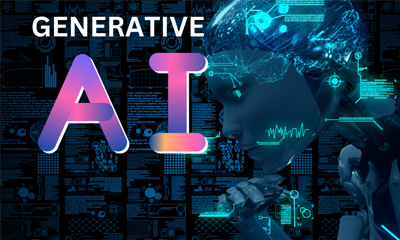Databricks
RBCloudGenX Databricks course is designed to equip learners with the knowledge and skills necessary to work with Apache Spark and Databricks. It’s beneficial for those aiming to obtain Databricks certification and gain expertise in big data processing, analytics, and machine learning.
Course Rating :
4.8 (926)

Course Overview
RBCloudGenX Databricks course is designed to equip learners with the knowledge and skills necessary to work with Apache Spark and Databricks. It’s beneficial for those aiming to obtain Databricks certification and gain expertise in big data processing, analytics, and machine learning. The course walks through the essentials of big data, Spark’s various programming languages, and the use of Databricks’ unified platform, including its architecture and community edition. Learners will understand how to implement Databricks on Azure and AWS cloud services, integrate into data pipelines, and set up their workspaces and clusters. The course also covers data ingestion, performing queries, data visualization, and the use of Delta Lake for data reliability. By the end of the course, participants will be well-prepared to take Databricks certification courses and apply their knowledge in real-world scenarios, from analytics to machine learning projects.
Key Points
In this Databricks online certification course, you will gain end-to-end practical knowledge of below concepts.
- Spark Architecture: Understanding Apache Spark architecture, including RDDs, DataFrames, and Spark SQL.
- Data Ingestion and ETL Processes: Mastering data ingestion, transformation, and loading (ETL) workflows.
- Optimization Techniques: Applying techniques for caching, partitioning, and optimizing Spark jobs.
- Delta Lake: Utilizing Delta Lake for reliable data storage, ensuring ACID transactions, and scalable data pipelines.
- Spark SQL: Performing data operations and query optimization using Spark SQL.
- Performance Tuning: Techniques for optimizing Spark applications and cluster configurations.
- Machine Learning with MLlib: Using Spark's MLlib for implementing machine learning algorithms and feature engineering.
- Model Management with MLflow: Tracking experiments, managing models, and deploying ML models using MLflow.
- Streaming Data: Building and managing real-time data pipelines using Structured Streaming and Auto Loader.
- Data Analysis and Visualization: Writing SQL queries, creating data visualizations, and building interactive dashboards and reports.
Course Curriculum
- What is the “Cloud”?
- Why cloud services
- Types of cloud models
- Deployment Models
- Private Cloud deployment model
- Public Cloud deployment model
- Hybrid cloud deployment model
- Microsoft Azure,
- Amazon Web Services,
- Google Cloud Platform
- Characteristics of cloud computing
- On-demand self-service
- Broad network access
- Multi-tenancy and resource pooling
- Rapid elasticity and scalability
- Measured service
- Cloud Data Warehouse Architecture
- Shared Memory architecture
- Shared Disk architecture
- Shared Nothing architecture
- Core Azure Architectural components
- Core Azure Services and Products
- Azure solutions
- Azure management tools
- Securing network connectivity
- Core Azure identity services
- Security tools and features
- Azure Governance methodologies
- Monitoring and reporting
- Privacy, compliance, and data protection standards
- Azure subscriptions
- Planning and managing costs
- Azure support options
- Azure Service Level Agreements (SLAs)
- Service Lifecycle in Azure
- Introduction to Databricks
- Azure Databricks Architecture
- Azure Databricks Main Concepts
- Azure Free Account
- Free Subscription for Azure Databricks
- Create Databricks Community Edition Account
- Creating and configuring clusters
- Create Notebook
- Quick tour on notebook options
- Dbutils commands on files, directories
- Notebooks and libraries
- Databricks Variables
- Widget Types
- Databricks notebook parameters
- Azure Databricks CLI Installation
- Databricks CLI – DBFS, Libraries and Jobs
- Read data from Blob Storage and Creating Blob mount point
- Reading files from Azure Data Lake Storage Gen2
- Reading Files from data lake storage Gen1
- Read CSV Files
- Read TSV Files and PIPE Separated CSV Files
- Read CSV Files with multiple delimiters in spark 2 and spark 3
- Read Parquet files from Data Lake Storage Gen2
- Reading and Creating Partition Files in Spark
- Reading and Writing JSON Files
- Reading, Transforming and Writing Complex JSON files
- Reading and Writing ORC and Avro Files
- Reading and Writing Azure Synapse data from Azure Databricks
- Read and Write Data from Redshift using data bricks
- Reading and Writing Data from Snowflake
- Reading and Writing data from Azure Cosmos DB Account
- Python Introduction
- Installation and setup
- Python Data Types for Azure Databricks
- Deep dive into String Data Types in Python for Azure Databricks
- Deep dive into python collection list and tuple
- Deep dive on set and dict data types in python
- Python Functions and Arguments
- Lambda Functions
- Python Modules and Packages
- Module 25: Python Flow Control
- Python Flow Control
- For-Each
- Python Flow Control
- For-Each
- Python File Handling
- Python Logging Module
- Python Exception Handlings
- Pyspark Introduction
- Pyspark Components and Features
- Apache Spark Internal architecture
- jobs stages and tasks
- Spark Cluster Architecture Explained
- Different Ways to create RDD in Databricks
- Spark Lazy Evaluation Internals & Word Count Program
- RDD Transformations in Databricks & coalesce vs repartition
- RDD Transformation and Use Cases
- Spark SQL Introduction
- Different ways to create DataFrames
- Catalyst Optimizer and Spark SQL Execution Plan
- Deep dive on Spark session vs spark context
- spark SQL Basics part-1
- RDD Transformation and Use Cases
- Spark SQL Basics Part-2
- Joins in Spark SQL
- Spark SQL Functions part-1
- Spark SQL Functions part-2
- Spark SQL Functions Part-3
- Spark SQL UDFs
- Spark SQL Temp tables and Joins
- Implementing SCD Type1 and Apache Spark Databricks Delta
- Delta Lake in Azure Databricks
- Implementing SCD Type with and without Databricks Delta
- Azure Data Factory Integration with Azure Databricks
- Delta Streaming in Azure Databricks
- Data Ingestion with Auto Loader in Azure Databricks
- Azure Databricks Project-1
- Azure Databricks Project-2
- Azure Databricks CICD Pipelines
Learning Outcome
Upon completing a Databricks course, participants can expect to achieve the following learning outcomes:
- Proficient Use of Apache Spark: Gain in-depth knowledge of Apache Spark architecture and its core components, enabling you to efficiently handle big data processing tasks.
- Effective Data Engineering Practices: Master the skills needed for data ingestion, transformation, and loading (ETL) processes, ensuring efficient and reliable data pipelines.
- Advanced Optimization Techniques: Learn to optimize Spark applications and job performance through caching, partitioning, and other tuning techniques.
- Robust Data Management with Delta Lake: Understand and apply Delta Lake for managing data storage with ACID transactions, enhancing data reliability and scalability.
- SQL and Data Analysis Proficiency: Develop the ability to perform complex data operations using Spark SQL, write efficient queries, and analyze large datasets.
- Machine Learning Implementation: Acquire the capability to build, train, and deploy machine learning models using Spark’s MLlib and MLflow, enhancing your data science skillset.
- Real-time Data Processing: Gain expertise in building and managing streaming data pipelines using Structured Streaming, enabling real-time data analysis and processing.
Who this course is for?
Following are the professionals who can advance in their career by learning Databricks training:
- Data Analysts
- Data Engineers
- Data Scientists
- Database Architects
- IT professionals and Freshers who wish to build their career in advanced data warehouse tools.
FAQs
Databricks is a cloud-based data analytics platform that provides tools for processing large-scale data, performing machine learning, and running large-scale analytics workloads. It integrates with Apache Spark, Delta Lake, and other big data technologies.
Databricks offers several certifications, including:
- Databricks Certified Associate Developer for Apache Spark
- Databricks Certified Professional Data Engineer
- Databricks Certified Machine Learning Associate
- Databricks Certified Data Analyst Associate
Databricks courses are suitable for data engineers, data scientists, data analysts, and IT professionals who work with big data and need to leverage Apache Spark, machine learning, and data engineering workflows on the Databricks platform.
Prerequisites vary by course but generally include:
- Basic knowledge of big data concepts
- Familiarity with Apache Spark
- Experience with programming languages such as Python or Scala
- Understanding of SQL for data analysis-related courses
Preparation tips include:
- Reviewing official Databricks documentation and study guides
- Practicing hands-on with Databricks notebooks and datasets
- Taking sample exams and quizzes
- Engaging with the Databricks community and forums
Key topics include:
- Apache Spark architecture and core concepts
- Data ingestion, transformation, and ETL processes
- Optimization techniques and performance tuning
- Using Delta Lake for data management
- Machine learning with MLlib and MLflow
- Real-time data processing with Structured Streaming
- SQL and data analysis
- Data visualization and dashboard creation
The duration varies based on the course and the learner's pace, but typically ranges from a few weeks to a couple of months, including hands-on practice and exam preparation.
Benefits include:
- Validated expertise in big data and machine learning
- Enhanced job prospects and career advancement
- Recognition within the data science and engineering community
- Improved ability to work efficiently with Databricks tools and technologies
Yes, you can retake the certification exam if you fail. Databricks usually allows multiple attempts, but there might be a waiting period between attempts and additional exam fees.
Databricks courses are delivered through various formats including:
- Online self-paced courses
- Instructor-led virtual or in-person training
- Hands-on labs and projects
- Interactive tutorials and notebooks
Yes, there is a vibrant Databricks community where learners can engage, ask questions, share insights, and collaborate. The Databricks Community Forum and user groups are excellent resources for support and networking.
Certifications
- Databricks Certified Associate Developer for Apache Spark
- Databricks Certified Professional Data Engineer
- Databricks Certified Machine Learning Associate
- Databricks Certified Data Analyst Associate
Enroll Free Demo Class
Have Any Questions ?
- 521 Dyson Rd HainesCity FL 33844
- info@rbcloudgenx.com
- +1 8043007153
Prerequisites
There are no mandatory prerequisites for learning Databricks, but having basic knowledge or experience in the data warehouse and SQL is an added advantage.
Our Other Courses
Data Science is an interdisciplinary field that combines statistical analysis, machine learning, and domain expertise to extract insights from data.
Machine Learning is a branch of artificial intelligence (AI) that enables systems to learn from data and improve over time without being explicitly programmed.
The Artificial Intelligence (AI) course is designed to provide a comprehensive introduction to the concepts, techniques, and applications of AI.
This comprehensive Generative AI course is designed to empower participants with the knowledge and skills to harness the power of artificial creativity.
Rate This Course !
Click on a star to rate it!
Average rating 0 / 5. Vote count: 0
No votes so far! Be the first to rate this post.





